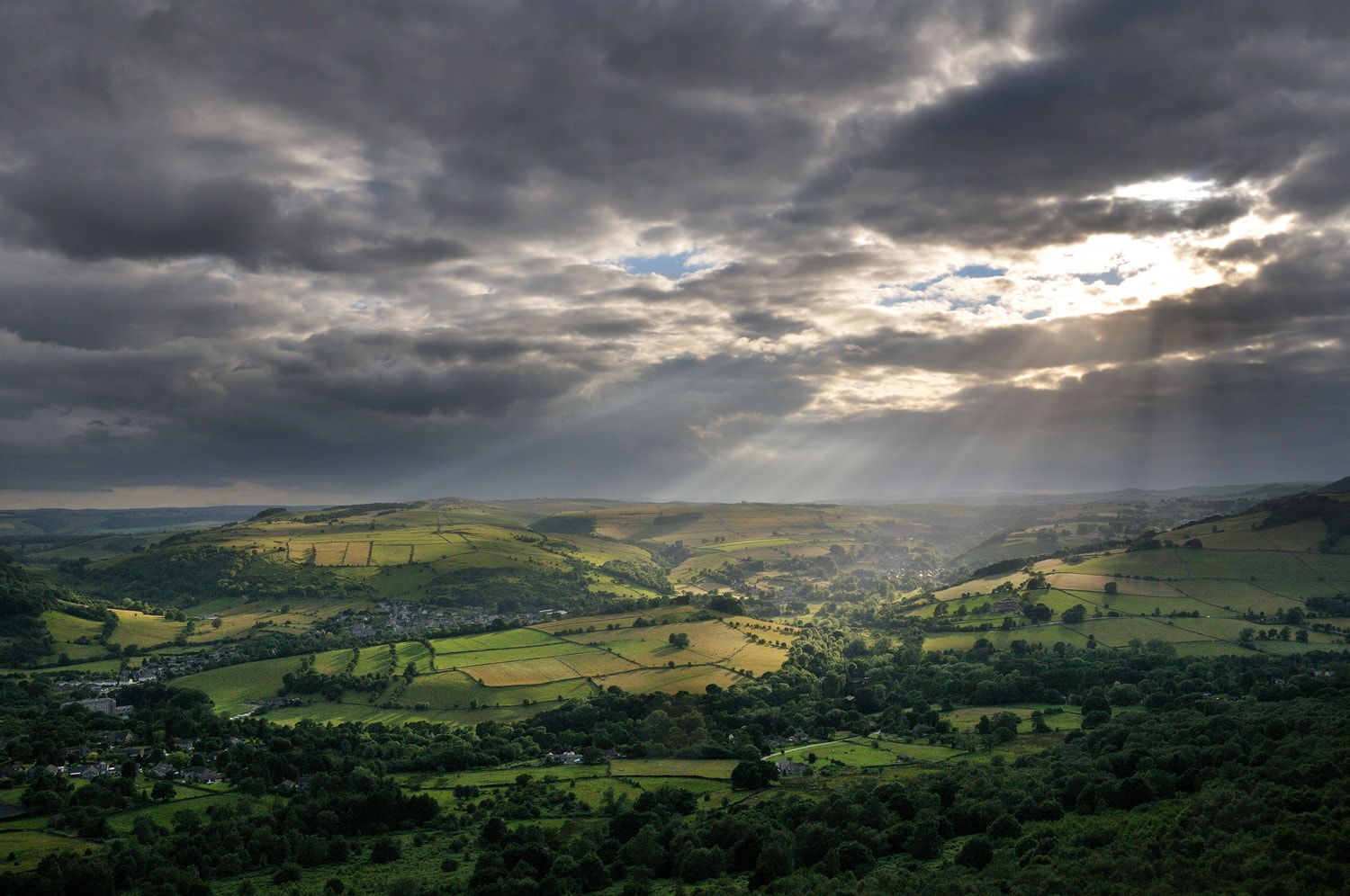#70People70Years - Alderman Norman Gratton CBE

Alderman Norman Gratton CBE – 'man of the people'
Born in 1889, in Tideswell, he worked at Litton Mill from the age of 13, for thirty years, but is best remembered for his service to others. Norman Gratton CBE was a Board member for the National Park from 1951, and chair from 1956 to 1977.
Extract from an obituary in the Peak District National Park annual report published in 1983:
Norman Gratton's working life spanned 81 years, 54 in public service. He was elected onto Tideswell parish council in 1928, and went on to serve with Bakewell Rural District Council, the Derwent Valley Water Board, Derbyshire County Council (chairman for three years), and the Peak Board. He was closely involved in both the trades union and the Co-operative Society movements, rising to become regional organiser for the General and Municipal Workers Union (GMWU) and full-time secretary of the Tideswell Co-operative Society. He also helped form (and later chair) the local branch of the Workers’ Education Association, for which, in 1960, he was awarded an honorary MA by Manchester University. Five years later he received the CBE, and in 1977 was made an honorary Master of Science by Sheffield University.
John Beadle, Chairman of the Board [in 1983], said of Norman Gratton: "During his years of service as a member of the Peak Park Board, and particularly during his twenty years as chairman, he did much to bring about the successes which the National Park has achieved. He was a truly outstanding man of the people."
Many board members and staff attended Norman Gratton's funeral service, which was held at Tideswell Church – the Cathedral of the Peak. Over 140 people attended, and heard the Vicar pay him tribute as: "One whose rebellious spirit stood out as good and true and noble, who was determined to see good decisions taken, who was determined to preserve the beauty, the tranquillity, the splendour of the Peak Park he loved so much - and yet could be gentle in his leadership."
Extract from the 1976 annual report, in which Alderman Gratton reflected on 25 years of the National Park:
If it were not for the Peak National Park, Mr Gratton told guests [at a dinner to celebrate 25 years of the Peak National Park at the Waterloo Hotel, Taddington], the central area would be a 'vast straggling suburb' by now. He said the most notable success in the Park's 25 years was, in his opinion, the curtailment of the sprawl of urban development. "But," he added, "this is not noticed so much, and therefore gets little mention."
As a result of the Board’s activities, the Peak District still had character, a rural character. "There are places where people can still get some quiet relaxation, and I like to think some re-creation," added Mr Gratton. "But trying to maintain this is no easy matter. It means control and making decisions."
"The truth is," said Mr Gratton, "the Peak District is a place where people live – their welfare must be our concern, though our powers to provide are not as good as some imagine."
Visitors were a fact of life, and would come anyway if the place was a National Park or not. The Board's job was to make conditions as tolerable as possible for those who lived there.
"Better understanding, good management, reconciling conflict where possible. These are our aims," said Mr Gratton. "We don’t always succeed, but I hope we try."
Reviewing the quarter-century, Mr Gratton said in the moorland areas, where once there was conflict and confrontation, there was now public access by agreement to seventy-six square miles, and a regular dialogue between landowners and the Board. The Ranger Service helped protect property, livestock, wildlife and local interests, and looked after the needs and safety of visitors. The land management panels, set up by the Board to help prepare and implement development plan policies, were a great step forward from the days of "suspicion, if not downright opposition", whilst the Board's forestry section had planted 400,000 trees since 1966. Caravan, camping sites and hostel accommodation had been provided by the Park Management section, while the information service, seeking to explain the Park and encourage better understanding, had been established, along with the residential centre at Losehill Hall.
Back to 70 People, 70 Years.

